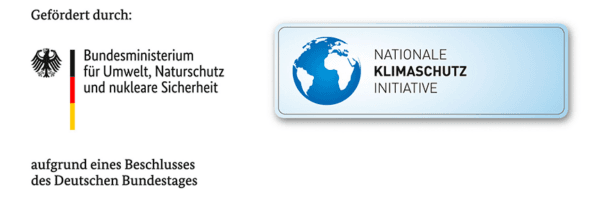KEEKS - Climate and energy-efficient kitchens in schools
The KEEKS project (2016-2019) was dedicated to "Climate and energy-efficient catering in schools". The focus was on the question of how this special form of out-of-home catering can be made more climate and energy efficient without negatively impacting other aspects such as "healthy eating" or "workload".
The "KEEKS - Climate and energy-efficient catering in schools" project aimed to determine greenhouse gas (GHG) emissions in school catering and the associated opportunities for tapping into potential savings. For the first time, KEEKS analysed all the interlinked life cycles of out-of-home catering, such as land use, food production, processing, transport, storage, preparation and waste generation with regard to the greenhouse gas emissions generated using the example of 22 school kitchens in the Cologne area. With its project results, the project made a contribution to the recording of real greenhouse gas emissions from school catering with approx. 950,000 meals per year by Netzwerk e.V. as well as to the potential for GHG savings.
For example, we can now make a solid estimate that an average school meal is associated with GHG emissions of 1.3 kg of CO2 equivalents (CO2 eq) per meal of around 300 g. Or that around 0.5 kWh of electricity is used per meal for preparation in school kitchens. The potential analyses and the practical test have shown that around 40% of emissions can be achieved through a climate-efficient selection of food, energy-efficient use of and investment in kitchen technology, as well as through a waste avoidance strategy.
Based on a status quo analysis and a practical test, KEEKS collected precise data on the GHG emissions associated with school catering in our 22 school kitchens. On this basis, KEEKS was able to develop 19 measures in four areas:
- Food (select) = Measures ML
- Technology (optimisation through investments) = Measures MV
- Behaviour (in dealing with the technology) = Measures MT
- Waste (avoidance) = MA measures
The 19 measures have the potential to reduce greenhouse gas emissions in school kitchens by around 40% and can make an important contribution to achieving the national climate protection targets. The most important measures are the climate optimisation of the menu plan through the substitution and reduction of meat (no beef and only two meat dishes per week) and the avoidance of waste. Together, these two measures save around 20% of GHG emissions. This is followed by the replacement of dairy products with 5% (low-fat and milk alternatives) and investments in energy-efficient freezing technology with 4% savings potential. The other 15 measures then have a potential of around 10% of GHG savings. The following table shows these measures and their savings potential:
With its qualification and public relations measures, KEEKS has therefore made an important contribution to the funding policy objectives of the National Climate Initiative programme of the Federal Ministry for the Environment, Nature Conservation and Nuclear Safety: KEEKS has shown where the potential lies and has taken the first steps towards communicating this finding widely and initiating behavioural changes among relevant players in the out-of-home care sector. We have developed the following materials for this purpose (see www.keeks-projekt.de):
- KEEKS platform: www.keeks-projekt.de,
- KEEKS brochure with measures for a climate-friendly school kitchen,
- KEEKS guidelines for climate-friendly school kitchens,
- KEEKS-E cookbook for communal catering,
- KEEKS web app with climate- and energy-efficient dishes,
- KEEKS training manual for practitioners and learners in the school kitchen,
- KEEKS learning videos (10),
- KEEKS information materials: flyers and posters
It is particularly noteworthy that the German projects "KEEKS - Climate and Energy Efficient Kitchens in Schools" (IZT project) and "Aktion Pflanzenpower" (ProVeg project) received the international "Momentum for Change" award from the UNFCCC - the UN Secretariat. The award ceremony took place at COP24 in Katowice, Poland, on 11 December 2018. KEEKS was thus honoured as a "Lighthouse Project" in the "Planetary Health" category.
Illustrations: KEEKS-UNFCCC award ceremony and certificate for the three award-winning activities in the "Planetary Health" category
More info
Info
Project management
Employees
- Katrin Ludwig
- Malte Schmidthals
- Ralph Eyrich
Research field
Title
KEEKS - Climate and energy-efficient kitchens in schools
Duration
2016 until 2019
Grant/contracting authority
Project partner
Info
Title
KEEKS - Climate and energy-efficient kitchens in schools
Duration
2016 until 2019
Grant/contracting authority



